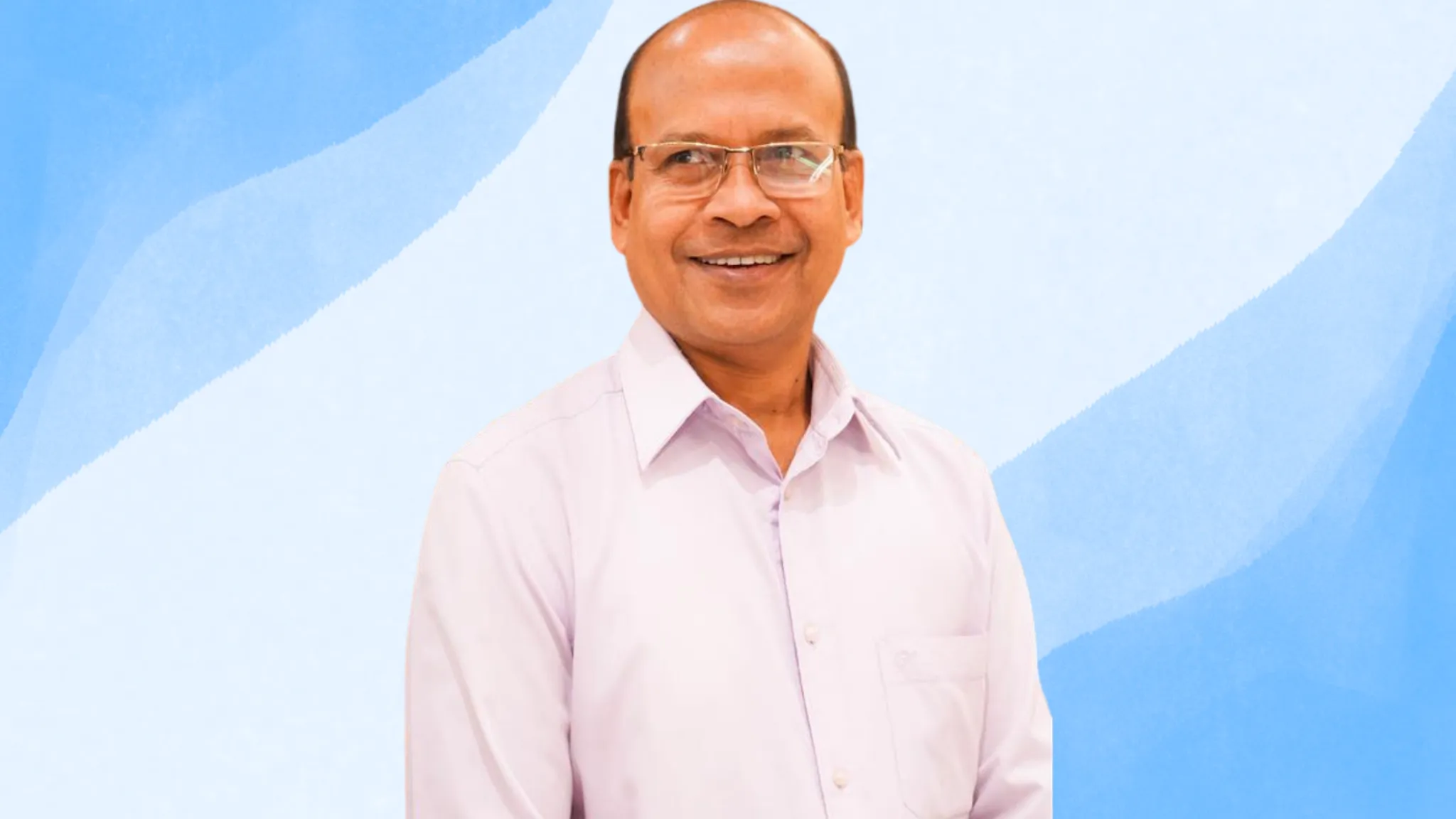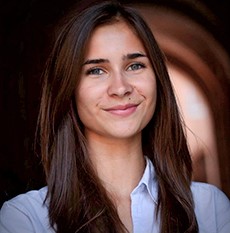Q&A: Md Abdul ALIM on democratic reforms in Bangladesh post-Hasina

Disclaimer: Opinions expressed in this commentary are those of the authors and do not necessarily represent the institutional position of International IDEA, its Board of Advisers or its Council of Member States.
Bangladesh has entered a new era of reform following its 'Gen Z revolution,’ which ended Sheikh Hasina’s 15-year reign on 5 August 2024. The student-led protests began peacefully, triggered by a controversial government job quota scheme that favoured relatives of independence war veterans and the ruling party, Awami League.
Protests quickly morphed into broad anti-government demonstrations amid a violent crackdown by authorities, leading to at least 650 deaths, according to United Nations reports.
Despite a military curfew, protesters breached Hasina's residence, leading to her departure. The President dissolved Parliament, and on 8 August, Nobel laureate Muhammad Yunus was sworn in as Bangladesh’s interim Chief Adviser (a position akin to the prime minister), fulfilling a key protester demand. The interim government, formed in consultation with students, the military and civil society, promised elections after crucial reforms.
However, the road to a new Bangladesh has its challenges.
The Global State of Democracy 2024 data shows that Bangladesh exhibits low performance in three categories of democratic quality: Representation, Rights and Rule of law. It has also suffered a significant decline in measures of Elected Government compared to five years ago. Moreover, toxic animosity between two dynastic parties – Awami League and Bangladesh National Party - together with weak internal party democracy - has severely hampered democratic reforms.
A Catch-22 type of sequencing problem makes the timing of elections difficult. If an unelected government enacts reforms, the reforms may lack legitimacy, but an election may not be legitimate without the reforms.
To explore the critical democratic reforms needed, I spoke with MD Abdul Alim, Principal Director at Democracy International and a prominent elections expert in Bangladesh.
The interim government has indicated that elections will occur once critical reforms have been made to state institutions. Which reforms are the most pressing in restoring the population’s trust in government?
The Bangladesh Election Commission (BEC) mainly makes policy decisions when conducting elections, while other agencies, such as law enforcement agencies and local administration, directly conduct elections at the constituency levels. These agencies have been politicized, especially during the last 15 years, and they have been complicit in [favouring] the ruling class, including by ballot box stuffing, controlling opposition campaigning, ejecting opposition polling agents from the polling stations, etc. Therefore, the interim government needs to neutralize these institutions before the next election. Moreover, due to the lack of required legal provisions, the BEC could not bring law enforcing agencies and local administration under its full control, which is key for the BEC to establish its full authority over the election administration. Additionally, the executive interfered in the judiciary, another state institution required for conducting elections.
[Moreover], the legal framework for selecting commissioners [“Chief Election Commissioner and Other Election Commissioners Appointment Act 2022” (Appointment Act 2022)] does not adhere to international guiding principles for the selection of commissioners and does not necessarily guarantee the appointment of the best-qualified people as election commissioners. Therefore, the interim government needs to re-write the law or promulgate a new one to ensure the credible appointment of election commissioners.
[In summary], appointment of credible election commissioners, bringing transparency in election management, including announcement of results, addressing electoral disputes, promoting non-partisan election observation, and bringing other state agencies involved in conducting elections under full control of the BEC are mandatory reform initiatives before the next parliamentary polls.
A key issue that has emerged is determining the appropriate timing for elections. What are the potential advantages and disadvantages of postponing the elections, and what measures are necessary to support genuine and sustainable democratic reforms?
There is pressure on the interim government to hold elections immediately, including [some] threatening a time-limit. However, if the polls are held now without any reforms, they will not bring any tangible change to Bangladesh’s politics and elections. [For example], four parliamentary elections out of 12 [since 1971] were held under a non-partisan caretaker government (CG), and these elections were termed mostly free and fair. However, political governments have not learnt from the CG. Rather, all the political governments appointed BEC commissioners primarily based on their bias and loyalty to the ruling party.
Controlled by the government of the day, BEC’s role in election administration was reduced to providing logistical support. The last CG, which remained in office for about two years (2007-2008), conducted massive electoral reforms before holding the 9th parliamentary elections in December 2008. However, due to the unofficial political intervention of the BEC, reforms could not be institutionalized. Therefore, massive reforms in the constitution, law enforcement agencies, and elections are critical to stopping any political intervention in the election administration and process.
The interim government formed an Electoral Reform Commission. The Commission is expected to conduct comprehensive reforms of the Constitution, Representation of People Order, 1972 (which is the main piece of election law), Delimitation Act, Election Officers’ Appointment Act, etc. The Commission may also focus on the structural reform of the BEC to make it a citizens’ body. Such reforms are required before holding genuine democratic elections in Bangladesh.
What do you think is needed to strengthen internal party democracy in Bangladesh?
The July-August uprising is a direct consequence of the long-standing ideological vacuum that has plagued the country since the Liberation War. Despite various political factions labelling themselves differently, they have largely failed to exhibit a coherent ideology that aligns with their manifestos or serves broader public interests. The fall of Sheikh Hasina's Government, unthinkable even six months ago, has not only changed the regime but also resulted in a number of takeaways for political parties to strengthen internal democracy.
Political parties should hold their council and [leadership elections] every three years to prevent stagnation from long-serving leaders and [allow] new voices to emerge. Currently, most parties [function] as proprietorships, where top leaders are irreplaceable until their death, and they make major leadership decisions unilaterally. To prevent power consolidation, no individual should be allowed to hold the same leadership position for [more than] two consecutive terms or five terms in a lifetime. [Former] leaders, ineligible for further holding top positions, may be included in a party’s advisory council, allowing fresh perspectives to form.
Parties should establish and institutionalize democratic decision-making processes. The decision-making structures and processes should provide opportunities for individual citizens to influence the choices that parties offer to voters. These opportunities will help citizens expand their civic skills, and inclusive processes can boost the legitimacy of the alternatives they produce. In this way, party institutions can perform useful educative functions while also being responsive to a broader sector of society.
Recruiting and selecting candidates is a crucial task for parties because parties’ profiles during elections (and while in office) are largely determined by which candidates are chosen and where their loyalties lie. Parties that want to include a wide circle of supporters in this process generally rely on one of two devices: either a direct ballot of eligible supporters, often called a “primary” election, or else nomination by some kind of party assembly. Whichever procedure is used, it should be a democratic one.
What discussions have emerged regarding the formation of new political parties?
Following the fall of Sheikh Hasina, some people emphasized the need to develop new political forces to carry forward the spirit of the student anti-discrimination movement, stating that traditional political parties are unlikely to achieve this. [The opposition] Bangladesh Nationalist Party's Acting Chairman also said it would not be wrong if anyone believes that new political parties are necessary for the development and safety of Bangladesh. Bangladesh has no constitutional or legal bar to form a new political party. However, there are terms and conditions to obtain registration with the BEC. I think the formation of new political parties will depend on the political context. If the existing parties fail to ensure democracy and fulfil the spirit of the movement, a new political party will likely be formed. Realizing this, BNP Secretary General Mirza Fakhrul Islam Alamgir warned party members against adopting tactics similar to those of the Awami League, saying that they would face the same consequences as AL did.
This interview has been edited for length and clarity.
RELATED: “The Alterations we need in our Election Commission,” MD Abdul Alim, The Daily Star




